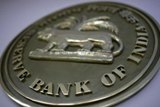
The central bank also projected the country’s economic growth at 7.3 percent this fiscal but did not expect the inflation rate to fall by any significant level, assessing it at around 6.5 percent by end-March, 2013.
Announcing the monetary policy for the current fiscal, RBI Governor D. Subbarao said the repurchase rate was being cut by 50 basis points (0.5 percentage points) to 8 percent, which will automatically lower the reverse repurchase to 7 percent from 7.5 percent.
The RBI also raised by 100 basis points to 2 percent the marginal standing facility that allows commercial banks to borrow more — over and above the money they have to park in government securities. The interest charged on this facility will now be 9 percent.
The repurchase rate is the interest the central bank levies on short-term borrowings by commercial banks. The reverse repurchase rate is the interest on short-term lending. A cut in these rates rate reduces the cost of accessing funds for lending institutions.
A cut in these rates also eases money supply in the system by making it more attractive for commercial banks not to park their funds with the Reserve Bank of India in the form of government securities, and instead lend it for commercial purposes.
The marginal standing facility was introduced in the monetary policy for last fiscal under which banks could borrow funds from the RBI at a rate which is one percentage point above the repurchase rate, by pledging government securities.
The borrowing limit under this facility was fixed at one percent of the net deposits of commercial banks and was introduced to tide over such situations when there was a large fall in liquidity in the system. This additional facility is now revised to 2 percent.
The quantum of the cut in key rates — 50 basis points — came as a pleasant surprise to India Inc after tight policy stance in the past 18 months. It expecting the proposals to lower their cost of borrowing, generate demand and spur growth.
The decisions also had an immediate impact on the market, resulting in the sensitive index (Sensex) of the Bombay Stock Exchange (BSE) gaining 103 points, or 0.6 percent, soon after the unveiling of the policy. The index ended with a gain of 206 points, or 1.21 percent.
Following are the (old) and the new policy rates and ratios in percentage:
Bank Rate (9.5) 9.00
Repo Rate (8.5) 8.00
Reserve Repo Rate (7.5) 7.00
Marginal Standing Facility Rate (9.5) 9.00
Cash Reserve Ratio (4.75) 4.75
Statutory Liquidity Ratio (24) 24.00
According to the central bank, these policy decisions will help in stabilising growth, contain the risks of inflation and inflationary expectations and enhance the liquidity cushion available in the system.
Giving his overall assessment of the Indian economy during the current fiscal, Subbarao said the central bank estimated the gross domestic product (GDP) growth rate for 2012-13 at 7.3 percent.
“The advance estimate of GDP growth of 6.9 percent for 2011-12 by the Central Statistics Office (CSO) is close to the Reserve Bank’s baseline projection of 7 percent,” he said in the annual policy statement.
“Keeping in view the domestic demand-supply balance, the global trends in commodity prices and the likely demand scenario, the baseline projection for whole sale price inflation for March 2013 is placed at 6.5 per cent,” he added.
“Even though growth has fallen significantly in the past three quarters, our projections suggest the economy will revert close to its post-crisis trend growth in 2012-13, which does not leave much room for policy easing without aggravating inflation risks.”
IANS
The opinions, beliefs and viewpoints expressed by authors, news service providers on this page do not necessarily reflect the opinions, beliefs and viewpoints of Hill Post. Any views or opinions are not intended to malign any religion, ethnic group, club, organization, company, or individual.
Hill Post makes no representations as to the accuracy or completeness of any information on this site page.


